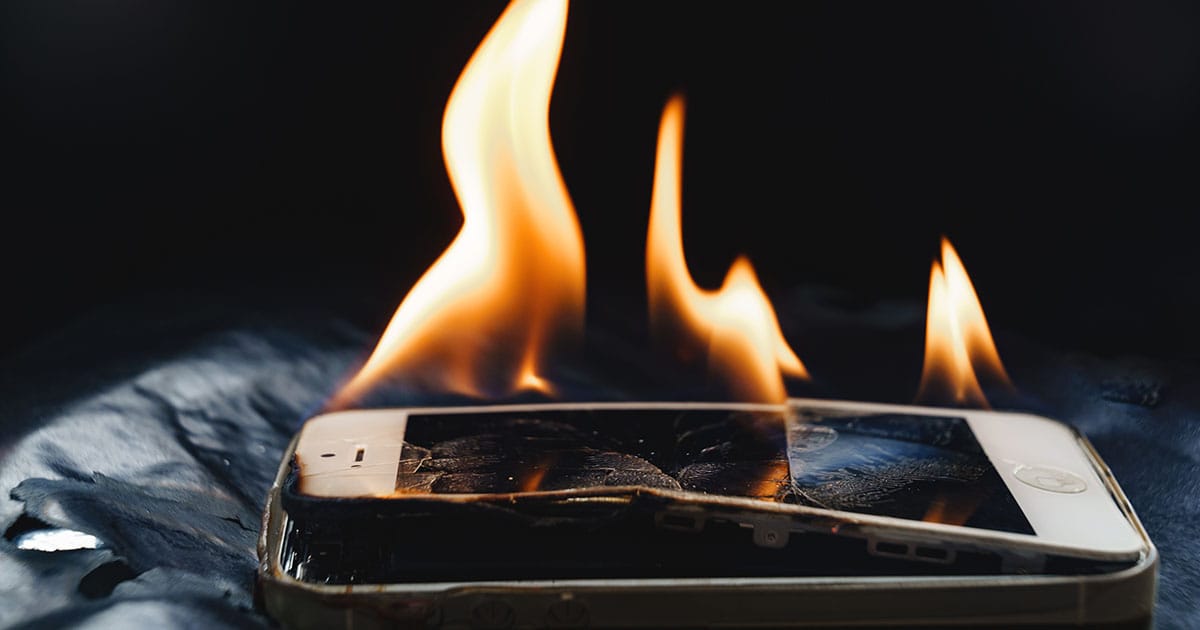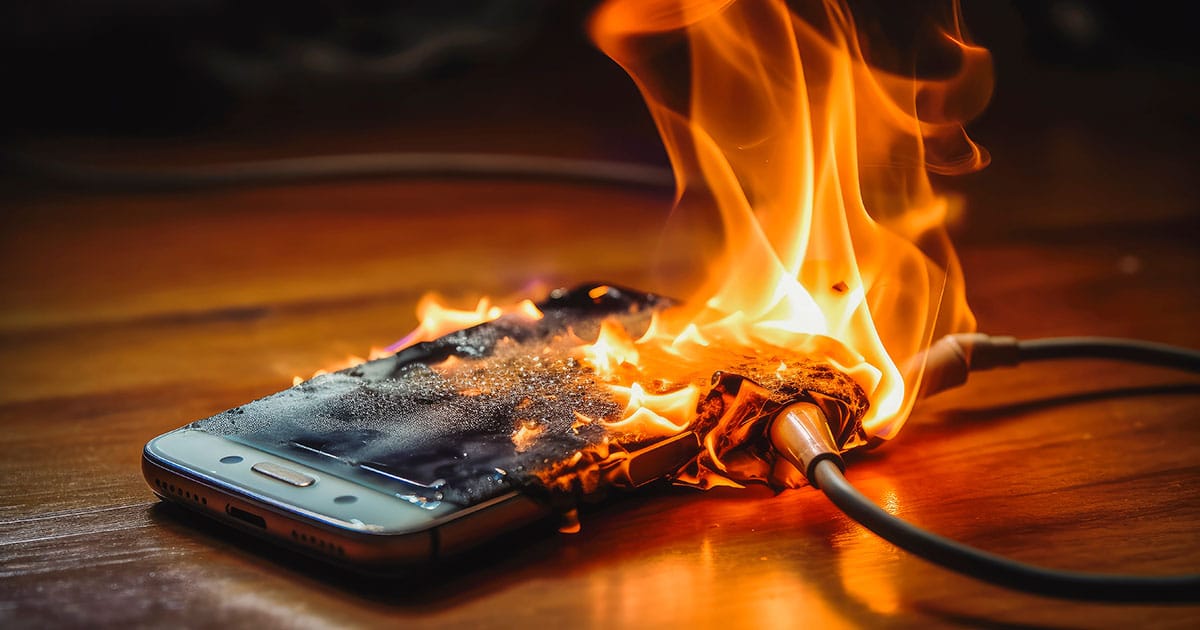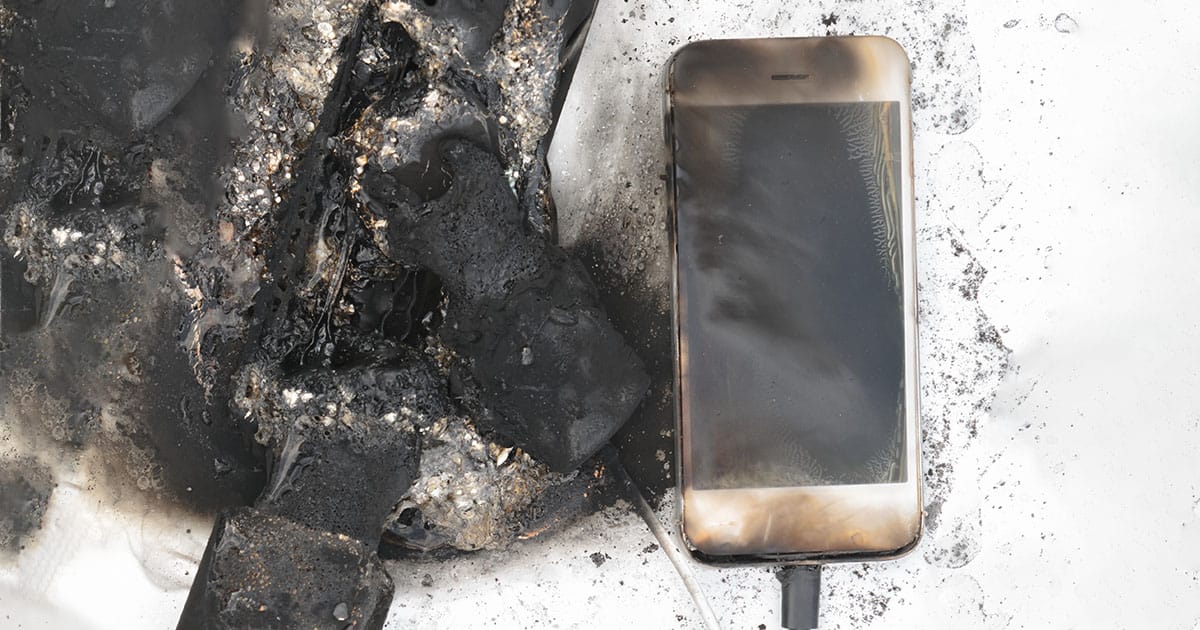Lithium-Ion Fires: Understanding the Risks and Safety Measures
In our increasingly digital world, lithium-ion batteries power a vast array of devices, from smartphones and laptops to electric vehicles and power tools. While these batteries offer many advantages, including high energy density and longer lifespans, they also come with a potential fire risk. In this blog post, we'll explore what causes lithium-ion fires, which devices are most susceptible, and discuss the importance of lithium-ion extinguishers.

What Causes Lithium-Ion Fires?
Lithium-ion fires are typically a result of a phenomenon called "thermal runaway." This occurs when the internal temperature of a lithium-ion battery rises uncontrollably, leading to the release of highly flammable electrolytes and the ignition of the battery's components. Several factors can trigger thermal runaway:
- Physical Damage: Punctures, crushes, or severe impacts can damage the battery's internal structure, causing short circuits and potentially igniting the battery.
- Overcharging or Overheating: Charging a lithium-ion battery beyond its recommended voltage or exposing it to high temperatures can lead to thermal runaway. Overcharging can cause the battery to release gas, expand, and potentially rupture.
- Manufacturing Defects: Rarely, manufacturing defects or impurities in battery cells can create internal shorts, making them susceptible to thermal runaway.
- Poor Quality Chargers or Batteries: Using low-quality chargers or counterfeit batteries can lead to overcharging, overheating, and an increased risk of fires.

Devices Prone to Lithium-Ion Fires
While lithium-ion batteries are common in many devices, some are more prone to fires than others. Devices with a higher risk of lithium-ion fires include:
- Smartphones and Laptops: These devices are frequently exposed to physical damage and often subject to heavy use, increasing the likelihood of battery issues.
- Power Tools: Battery-powered tools are often used in demanding environments and may be exposed to physical stress, increasing the risk of battery damage.
- Hoverboards and E-Scooters: These devices have gained notoriety for fires, often due to poor quality batteries or charger-related issues.
Electric Vehicles (EVs) are also prone to lithium-ion fires. EVs rely on large lithium-ion battery packs and although they are designed with safety measures, accidents or battery defects can lead to fires. However, EV fires cannot be extinguished with a fire extinguisher due to the size of the fires they cause. If an EV fire was to breakout, the fire brigade would have to be called to extinguish the fire.

Lithium-Ion Extinguishers: A Solution for Lithium-Ion Fires
Traditional fire extinguishers can be ineffective and even dangerous when used on lithium-ion fires. Lithium-ion batteries require a specific type of fire extinguisher known as a "lithium-ion extinguisher". Here's what you need to know about them:
- Lithium-Ion Extinguishers: Lithium-ion extinguishers contain an extinguishant designed specifically to combat fires involving lithium-ion batteries. They work by spraying an AVD (Aqueous Vermiculite Dispersion) compound which extinguishes the fire and prevents it from reigniting.
- Effectiveness: Lithium-ion extinguishers can effectively suppress lithium-ion fires by cooling and encapsulating the fuel source. These extinguishers are designed to be non-conductive and safe to use on electrical fires.
- Training and Awareness: It's essential to ensure that individuals who may encounter lithium-ion fires, such as first responders or employees working with battery-powered equipment, are trained in the proper use of lithium-ion extinguishers.
While lithium-ion batteries provide numerous benefits, it's crucial to understand the potential risks associated with them, especially the risk of fires. Preventing lithium-ion fires involves proper maintenance of devices, using quality chargers and batteries, and ensuring that individuals know how to respond in the event of a fire.
Fire Guard Services offer lithium-ion fire extinguisher installations and servicing to ensure that you and your premises is safe from lithium-ion fires. Contact us today for a free no obligation quote or contact us on 01582 469000
